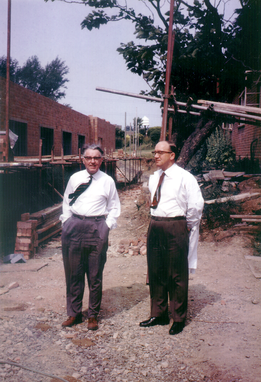Louis Harold Gray
Louis Harold Gray was a prominent British physicist and radiobiologist known for his significant contributions to the field of radiation biology. Born on November 10, 1905, in Bristol, England, Gray's work revolutionized the understanding of the effects of ionizing radiation on living organisms.
Gray's research focused on quantifying the biological effects of radiation exposure, particularly in the context of cancer treatment and radiation therapy. He developed the concept of the Gray as a unit of absorbed dose of radiation, which is widely used in radiation oncology and radiology.
Throughout his career, Gray conducted extensive studies on the mechanisms of radiation damage to cells and tissues, shedding light on the complex interactions between ionizing radiation and living organisms. His work laid the foundation for modern radiation therapy techniques and safety standards.
In recognition of his pioneering contributions to the field of radiobiology, Gray was awarded numerous honors and accolades, including the Commander of the Order of the British Empire.
Louis Harold Gray's legacy continues to inspire generations of researchers and medical professionals in the field of radiation biology and oncology. His groundbreaking work has had a lasting impact on the understanding and application of radiation in medicine.
Navigation: Wellness - Encyclopedia - Health topics - Disease Index - Drugs - World Directory - Gray's Anatomy - Keto diet - Recipes
Search WikiMD
Ad.Tired of being Overweight? Try W8MD's physician weight loss program.
Semaglutide (Ozempic / Wegovy and Tirzepatide (Mounjaro / Zepbound) available.
Advertise on WikiMD
WikiMD is not a substitute for professional medical advice. See full disclaimer.
Credits:Most images are courtesy of Wikimedia commons, and templates Wikipedia, licensed under CC BY SA or similar.Contributors: Prab R. Tumpati, MD

